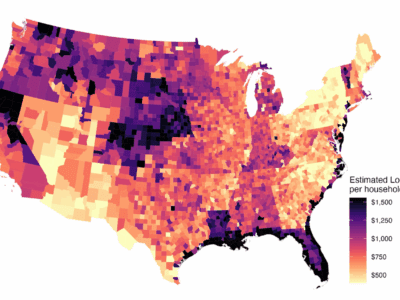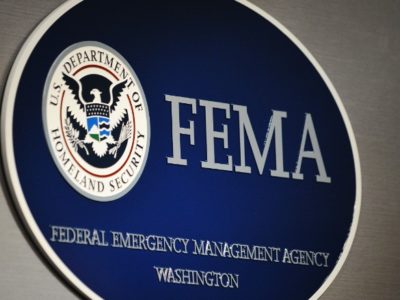Assessing the First Decade of California’s Sustainable Groundwater Management Act
You’re Invited to “10 Years In: A SGMA Report Card”–A Conference at U.C. Davis Law School on 9/6
 A decade ago, California stood out–and not in a good way–as the only Western state without comprehensive state laws monitoring and regulating groundwater pumping and use.
A decade ago, California stood out–and not in a good way–as the only Western state without comprehensive state laws monitoring and regulating groundwater pumping and use.
But in 2014, following years of severe and protracted California drought, and both agricultural and urban water users compensating for depleted surface water flows by pumping groundwater in unprecedented amounts, a fragile political consensus emerged among California legislators, water districts and environmentalists. Led by former Governor Jerry Brown’s administration, California’s political leaders coalesced around the idea that state oversight of previously-unregulated groundwater pumping in California was necessary if the state’s depleted groundwater aquifers were to be protected and replenished in the future.
In the fall of 2014, the Legislature enacted and Governor Brown signed into law the Sustainable Groundwater Management Act (SGMA).
But SGMA departs substantially from the “top-down” groundwater regulatory systems embraced by other Western states. Instead, California’s new law adopted a “bottom-up” philosophy, in which local water districts or communities overlying each of the state’s over-drafted groundwater aquifers are directed to self-organize into “groundwater sustainability agencies” (GSAs). SGMA charges each such GSA with developing, adopting and implementing their own “groundwater sustainability plan” (GSP). Under SGMA, each GSP is required to incorporate a set of rules and protocols designed to bring each of California’s over-drafted aquifers into “sustainability” by the 2040’s. SGMA further requires that each GSA’s groundwater sustainability plan be adopted and implemented so as to avoid any of seven “undesirable results” enumerated and defined in the statute.
To be sure, under SGMA there is some state oversight of this process: the California Department of Water Resources (DWR) is required to review and approve the creation and jurisdiction of each GSA. Similarly, every GSA must submit for DWR’s review and approval its proposed groundwater sustainability plan before that GSP can take effect. In extreme cases, if GSAs fail to timely submit a GSP to DWR, or if the Department determines that a submitted GSP is deficient under SGMA, California’s State Water Resources Control Board has “backstop” authority to develop, adopt and administer its own GSP in lieu of the deficient GSA’s missing or inadequate plan.
It’s now precisely 10 years since SGMA was enacted, and this “new” statute very much remains a work in progress. While some GSAs are making timely, good faith efforts to develop and implement their GSPs, other GSAs are dragging their heels. In still other cases, DWR has disapproved locally-submitted GSPs, finding them deficient under SGMA’s requirements. And in recent years an increasing number of lawsuits have been filed around the state challenging various GSAs’ actions and non-actions under SGMA, along with those of state regulators.
So, how well or poorly has SGMA worked over the past decade? How is SGMA likely to perform in coming years? And, based on the experience to date, are tweaks or even significant changes to SGMA necessary in order to bring California’s chronically over-drafted groundwater aquifers into long-term sustainability as the law requires?
These questions will be addressed, debated and analyzed at a day-long conference U.C. Davis School of Law’s California Environmental Law & Policy Center will convene at the law school on Friday, September 6th. The conference, titled “10 Years In: A SGMA Report Card,” will feature the following:
- Two plenary addresses: the first by DWR Director Karla Nemeth, the other by renown author and water policy expert Mark Arax (The Dreamt Land; The King of California).
- Four key SGMA panel discussions:
- one focusing on the process under SGMA by which GSAs have been formed and certified by DWR;
- another panel that assesses the process by which GSPs have been developed by groundwater sustainability agencies and reviewed by DWR;
- a third panel presenting four SGMA “case studies” from different regions in California; and
- a final panel that predicts how SGMA is likely to evolve over the next decade and, critically, whether revisions to SGMA are required in order to achieve the statute’s ambitious goals.
- An optional “30,000 foot” overview of SGMA and California groundwater law will kick off the conference and be of particular interest to attendees with limited prior familiarity with these topics.
A continental breakfast and full lunch will be provided for conference attendees. A hosted reception will follow immediately after the conference concludes at 5:00 p.m.
There is no cost to attend the conference, but attendees are asked to preregister for the event. (Attendance will be capped at 150 attendees due to space limitations.) MCLE credit is available to attending members of the California State Bar, also free of charge.
More information about “10 Years In: A SGMA Report Card,” including a detailed agenda, list of speakers and details on how to register for the conference can be found here.
The California Environmental Law & Policy Center invites you to join us at U.C. Davis School of Law on September 6th for a most timely, informative conference regarding what is perhaps the most important and controversial area of current California water law and policy.
(Co-sponsors of this conference include the California Department of Water Resources, the California State and Regional Water Boards, the California Lawyers Association’s Environmental Law Section and U.C. Davis’ Center for Watershed Sciences.)







Reader Comments